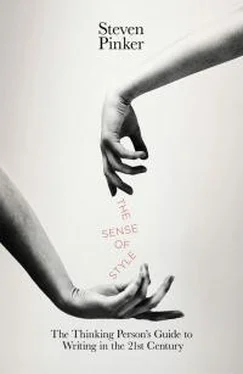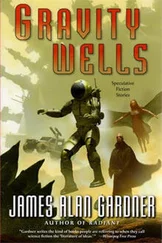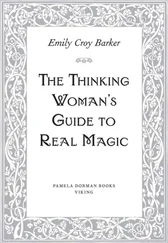preposition.The grammatical categoryof words that typically express spatial or temporal relationships: in, on, at, near, by, for, under, before, after, up.
pronoun.A small subcategory of nouns that includes personal pronouns ( I, me, my, mine, you, your, yours, he, him, his, she, her, hers, we, us, our, ours, they, them, their, theirs ) and interrogative and relative pronouns ( who, whom, whose, what, which, where, why, when ).
prosody.The melody, timing, and rhythm of speech.
quantifier.A word (usually a determinative) which specifies the amount or quantity of a head noun: all, some, no, none, any, every, each, many, most, few.
relative clause.A clause that modifies a noun, often containing a gap which indicates the role the noun plays inside that phrase: five fat guys who __ rock; a clause that __ modifies a noun; women we love __; violet eyes to die for __; fruit for the crows to pluck __.
remote conditional.An if-then statement referring to a remote possibility, one that the speaker believes to be false, purely hypothetical, or highly improbable: If wishes were horses, beggars would ride; If pigs had wings, they could fly.
semantics.The meaning of a word, phrase, or sentence. Does not refer to hairsplitting over exact definitions.
sequence of tenses.See backshift.
subject.The grammatical function of the phrase that the predicate is saying something about. In active sentences with action verbs it corresponds to the actor or cause of the action: The boys are back in town; Tex is tall; The baby ate a slug; Debbie broke the violin. In passive sentences it usually corresponds to the affected entity: A slug was eaten.
subjunctive.A mood,marked mainly in subordinate clauses, which uses the plain form of the verb, and indicates a hypothetical, demanded, or required situation: It is essential that I be kept in the loop; He bought insurance lest someone sue him.
subordinate clause.A clause embedded in a larger phrase, as opposed to the main clause of the sentence: She thinks I’m crazy; Peter repeated the gossip that Melissa was pregnant to Sherry.
subordinator.A grammatical category containing a small number of words that introduce a subordinate clause: She said that it will work; I wonder whether he knows about the party; For her to stay home is unusual. It corresponds roughly to the traditional category of subordinating conjunctions.
supplement.A loosely attached adjunctor modifier, set off from the rest of the sentence by pauses in speech and by punctuation in writing: Fortunately, he got his job back; My point—and I do have one—is this; Let’s eat, Grandma; The shoes, which cost $5,000, were hideous.
syntax.The component of grammar that governs the arrangement of words into phrases and sentences.
tense.The marking of a verb to indicate the time of the state or event relative to the moment the sentence is uttered, including present tense ( He mows the lawn every week ) and past tense ( He mowed the lawn last week ). A tense may have several meanings in addition to its standard temporal one; see past tense.
topic.A sentence topic is the phrase that indicates what the sentence is about; in English it is usually the subject, though it can also be expressed in adjuncts such as As for fish, I like scrod. A discoursetopic is what a conversation or text is about; it may be mentioned repeatedly throughout the discourse, sometimes in different words.
transitive.A verb that requires an object: Biff fixed the lamp.
verb.The grammatical categoryof words which are inflected for tense and which often refer to an action or a state: He kicked the football; I thought I saw a pussycat; I am strong.
verb phrase.A phrase headed by a verb which includes the verb together with its complementsand adjuncts: He tried to kick the football but missed; I thought I saw a pussycat; I am strong.
voice.The difference between an activesentence ( Beavers build dams ) and a passivesentence ( Dams are built by beavers ).
word-formation.Also called morphology: the component of grammar that alters the forms of words ( rip → ripped ) or that creates new words from old ones ( a demagogue → to demagogue; priority → prioritize; crowd + source → crowdsource ).
zombie noun.Helen Sword’s nickname for an unnecessary nominalizationthat hides the agent of the action. Her example: The proliferation of nominalizations in a discursive formation may be an indication of a tendency toward pomposity and abstraction (instead of Writers who overload their sentences with nouns derived from verbs and adjectives tend to sound pompous and abstract ).
Acknowledgments
I’m grateful to many people for improving my sense of style and The Sense of Style.
For three decades Katya Rice taught me much of what I know about style by copyediting six of my books with precision, thoughtfulness, and taste. Before editing this one, Katya read it as an expert, spotting problems and offering wise advice.
I have the good fortune of being married to my favorite writer. In addition to inspiring me with her own style, Rebecca Newberger Goldstein encouraged this project, expertly commented on the manuscript, and thought up the title.
Many academics have the lamentable habit of using “my mother” as shorthand for an unsophisticated reader. My mother, Roslyn Pinker, is a sophisticated reader, and I’ve benefited from her acute observations on usage, the many articles on language she’s sent me over the decades, and her incisive comments on the manuscript.
Les Perelman was the director of Writing Across the Curriculum at MIT during the two decades I taught there, and offered me invaluable support and advice on the teaching of writing to university students. Jane Rosenzweig, director of the Writing Center of Harvard College, has been similarly encouraging, and both commented helpfully on the manuscript. Thanks go as well to Erin Driver-Linn and Samuel Moulton of the Harvard Initiative for Learning & Teaching.
The Cambridge Grammar of the English Language and The American Heritage Dictionary, Fifth Edition, are two great accomplishments of twenty-first-century scholarship, and I have been blessed with advice and comments from their overseers: Rodney Huddleston and Geoffrey Pullum, coauthors of the Cambridge Grammar, and Steven Kleinedler, executive editor of AHD. Thanks go as well to Joseph Pickett, former executive editor of AHD, who invited me to chair the Usage Panel and gave me an insider’s look at how a dictionary is made, and to the current editors Peter Chipman and Louise Robbins.
As if this expertise weren’t enough, I have benefited from the comments of other wise and knowledgeable colleagues. Ernest Davis, James Donaldson, Edward Gibson, Jane Grimshaw, John R. Hayes, Oliver Kamm, Gary Marcus, and Jeffrey Watumull offered penetrating comments on the first draft. Paul Adams, Christopher Chabris, Philip Corbett, James Engell, Nicholas Epley, Peter C. Gordon, Michael Hallsworth, David Halpern, Joshua Hartshorne, Samuel Jay Keyser, Stephen Kosslyn, Andrea Lunsford, Liz Lutgendorff, John Maguire, Jean-Baptiste Michel, Debra Poole, Jesse Snedeker, and Daniel Wegner answered questions and directed me to relevant research. Various examples in the book were suggested by Ben Backus, Lila Gleitman, Katherine Hobbs, Yael Goldstein Love, Ilavenil Subbiah, and emailers too numerous to list. Special thanks go to Ilavenil for the many subtle variations and shadings of usage she has called to my attention over the years, and for designing the diagrams and trees in this book.
Читать дальше












